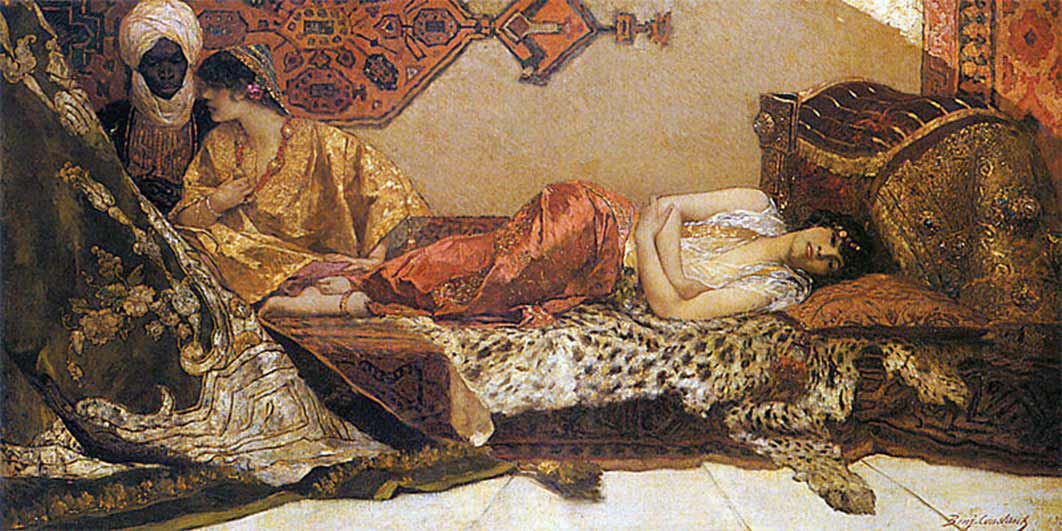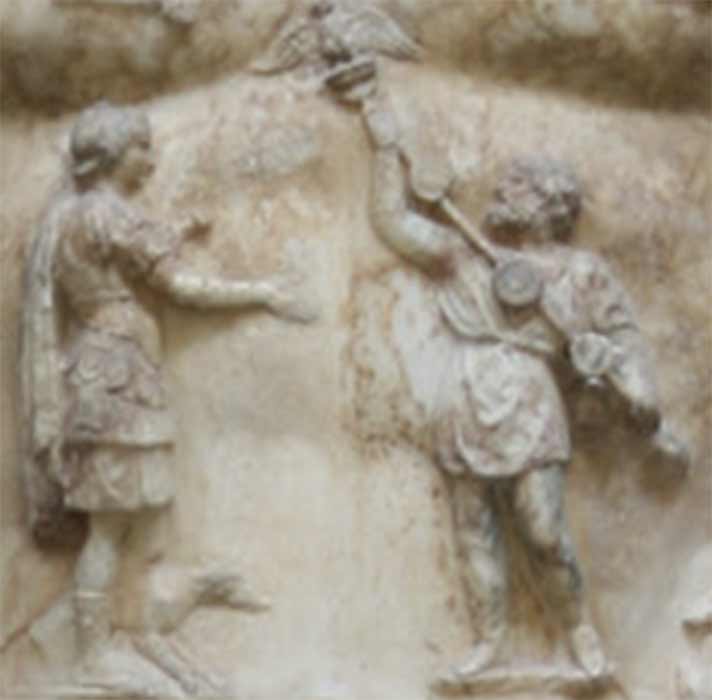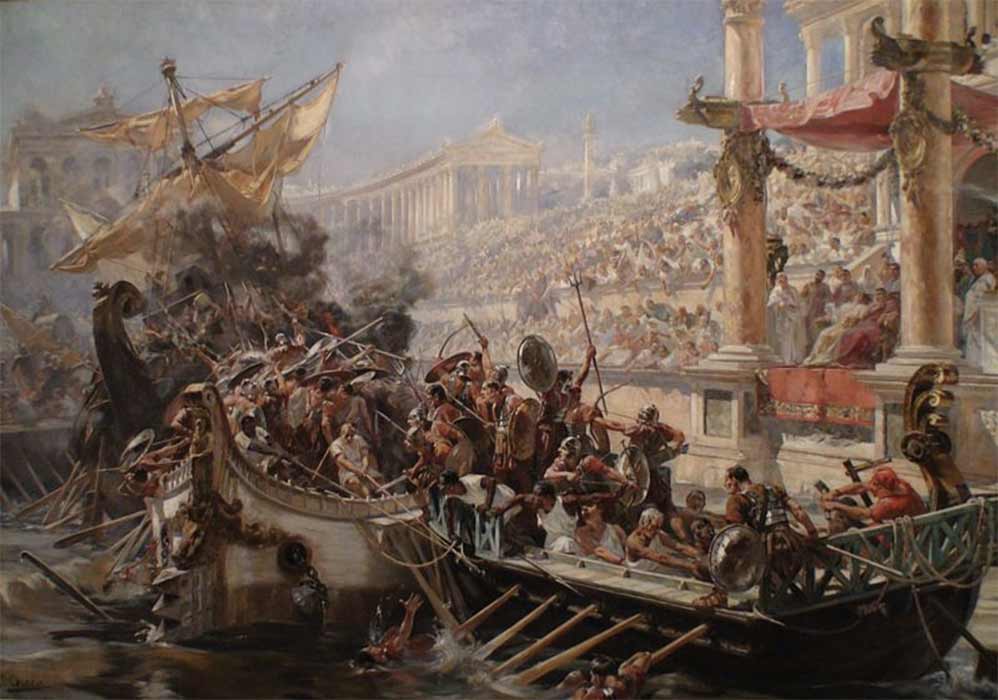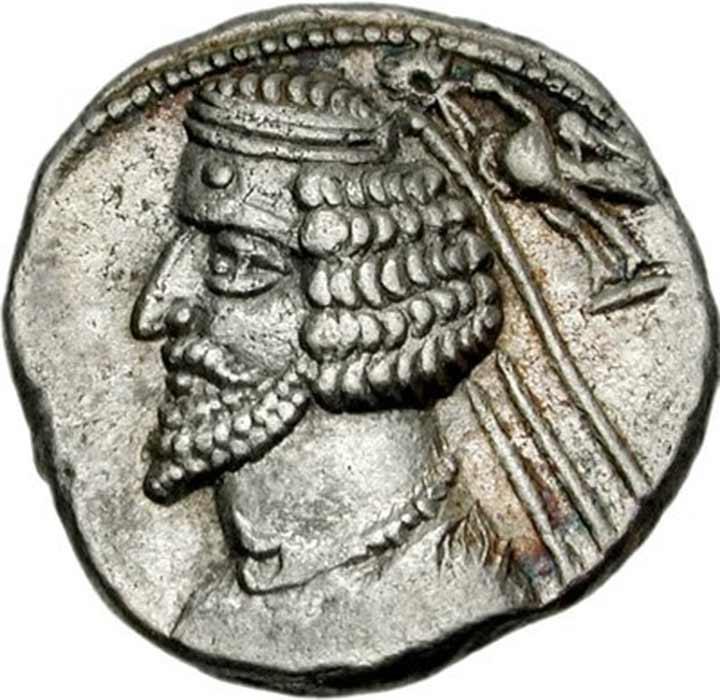
Divine Queen Thea Musa, The Parthian Basilíssa
The victory of the Parthians over the Roman General Marcus Licinius Crassus at Carrhae in 53 BC is perhaps the single most significant event in Rome's engagement with Parthia. The loss of Roman standards associated with Crassus' campaign in 53 BC was not only embarrassing, but also perilous for the Romans, who were concerned that any hint of military weakness would instil confidence in their adversary, to the detriment of Rome. The memory of this disaster became Rome's obsession and served as the impetus for a number of subsequent Roman invasions.

Detail from the breastplate of Augustus Prima Porta, showing a Parthian man returning the aquila lost by Crassus at the Battle of Carrhae ( Andreas Wahra/ CC BY-SA 3.0)
Imperial Reputation
Emperor Augustus' main purpose in the East was focussed on restoring Rome’s reputation in Parthia, even if it meant fighting the Parthians. As a result, his subsequent achievement in restoring Parthian norms may be the greatest significant triumph of Augustus’ foreign policy. This triumph was then heavily used in Imperial propaganda, as well as Augustus' own Res Gestae. Augustus proudly speaks of his subjugation of Parthia in Res Gestae 29 as he writes, “I compelled the Parthians to restore the spoils and standards of three Roman armies to me, and to seek as suppliants the friendship of the Roman people.” The recovered standards were temporarily held in a temple on the Capitoline Hill before being consecrated in 2 BC at Augustus' newly-erected temple of Mars Ultor in the Augustan Forum. The consecration of this temple was celebrated with the re-enactment, called a naumachia, of the great naval wars of Actium (Augustus against Anthony) and Salamis (Greeks against Persians). The Augustan forum's sculptural program confirmed the triumphal theme's significance as marble statues of Republican victorious generals adorned its porticoes and Augustus' victories were commemorated at the most prominent place, the center of the forum.

Naumachia an imaginative recreation by Ulpiano Checa, (1894) (Public Domain)
The Parthian Perspective
The Parthians returned the standards out of dread of Roman military might, according to Augustan propaganda. However, while a kneeling Parthian appears on Augustus' coins, no such act of submission actually occurred. The throne of King Phraates IV of the Parthian Empire was usurped by Tiridates II. After Phraates quickly re-established his rule, Tiridates fled to the Romans taking one of Phraates IV's sons with him. In negotiations conducted in 20 BC, Phraates IV returned the Romans’ lost legionary standards as well as any surviving prisoners of war. In exchange, Augustus returned Phraates’ son and added a gift of a Roman slave-girl. Although this did not seem like a fair exchange, the Parthians evidently considered returning some Roman standards, which were very important to the Romans, a small price to pay to regain their prince.

King Phraates IV (Classical Numismatic Group/ CC BY-SA 3.0)
Augustus Unusual Gift
Augustus’ gift, as well as the fact that he took the time to negotiate this arrangement, was unusual in itself. Political antecedents in Near Eastern monarchies influenced Augustus’ decision. In book 25 of his Life of Julius Caesar, Suetonius recalls that Julius Caesar had built a bridge over the Rhine and led an attack against the Germanic tribes. He also invaded the Britons, vanquished them, and exacted moneys and hostages. Traditionally the Romans were therefore not expected to negotiate with the Near Eastern monarchies, especially after their defeat in Carrhae at the hands of the Parthians. They were rather expected to massacre the Parthians, not negotiate with them. Therefore, one may assume that Augustus’ gift of the slave-girl may have been an attempt to gather intelligence or sway the Parthian king in Rome's favour. By upsetting the Parthian succession by inserting a slave-girl to seduce the king, Augustus could launch a punitive attack against Parthia, with the likely goal of transforming it into a Roman province. The fact that Phraates IV was not completely devoid of female comfort makes Augustus' gift all the more significant, as archaeological records indicate that at least four other Parthian queens were still alive in 20 BC.




